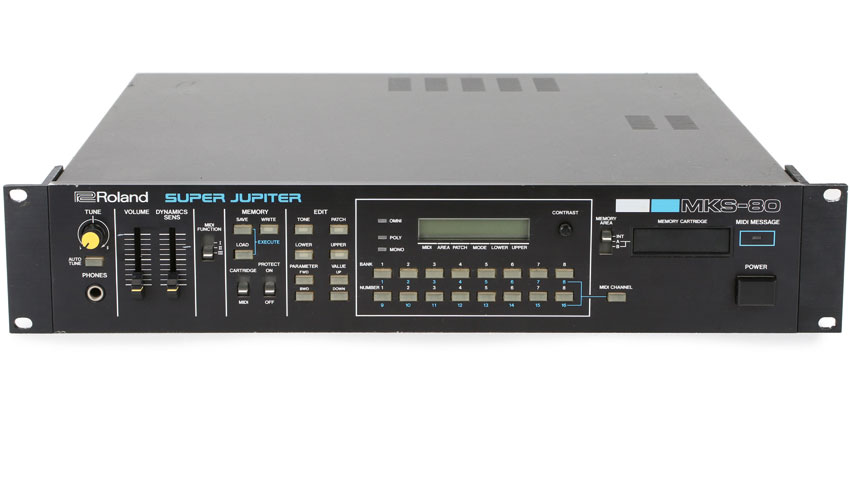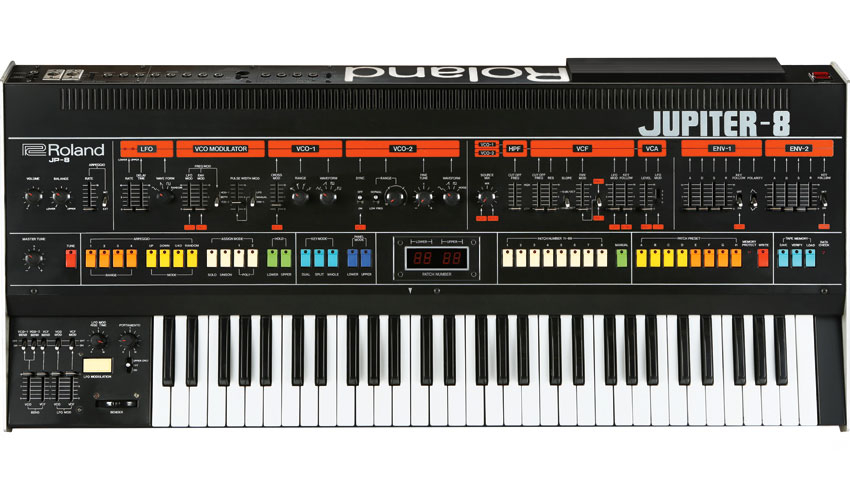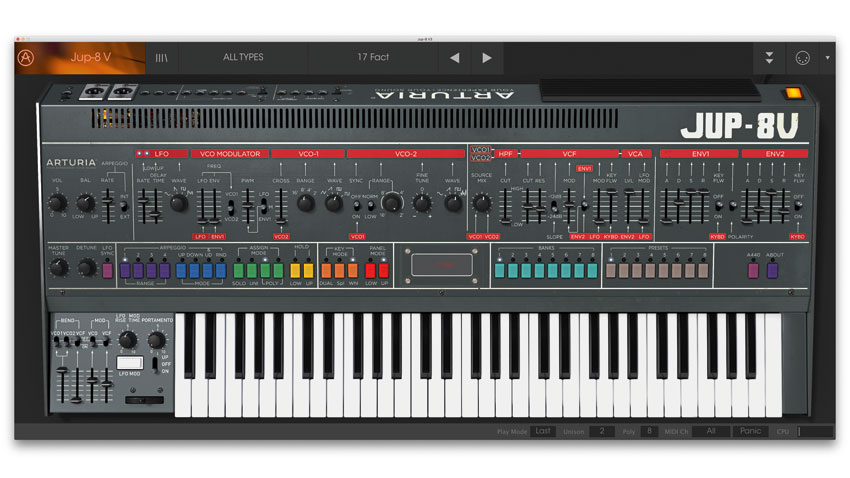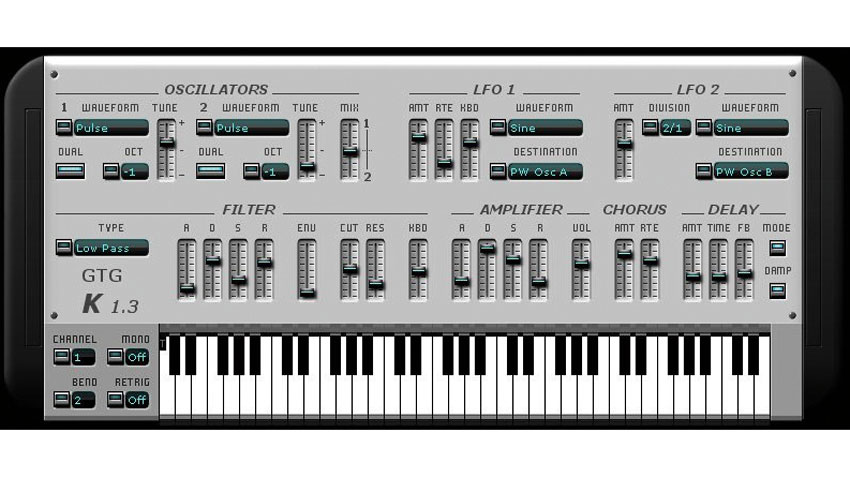Blast from the past: Roland MKS-80
Thanks to the wonders of modern computer technology, this still-affordable Jupiter remains a serious contender in today’s electronic studio

Want all the hottest music and gear news, reviews, deals, features and more, direct to your inbox? Sign up here.
You are now subscribed
Your newsletter sign-up was successful
With the current market for synths now bursting with monophonic and modular machinery, musicians are again clamouring for affordable analogue polysynths.
Of course, we’ve been here before. There was a mad race among 1970s manufacturers to produce a viable polyphonic synthesiser - one won easily by Dave Smith with his Prophet-5. A classy, costly instrument, it was followed by alternatives from competing synth companies, including Oberheim and Moog.
Roland had some ideas of their own, releasing a string of pricey polyphonic synthesisers bearing the name ‘Jupiter’. The first was the four-voice, single oscillator Jupiter-4, followed quickly by the massive eight-voice Jupiter-8, an instrument that now commands stratospheric prices among collectors.
At the time, synthesisers were primarily seen as keyboard instruments – there were few (if any) desktop or rack-mountable options available. The introduction of MIDI changed that by giving manufacturers a common means by which instruments could communicate, allowing the possibility of controlling multiple units from a single keyboard controller. Roland’s MKS-80 Super-Jupiter was an appropriate response to this new technology, cramming eight voices of pure analogue synthesis into a 2U 19” rack-mountable enclosure.
Often erroneously cited as the module version of Roland’s Jupiter-8, the MKS-80’s architecture looked more like the Jupiter-6, though plenty of improvements – such as the ability to respond to both MIDI velocity and aftertouch – make the Super-Jupiter one of the most expressive of all analogue polysynths.
Back to the ’80
The MKS-80’s voice architecture is pure Roland: dual oscillators per voice (yes, they crammed 16 actual VCOs - not DCOs - into that 2U box), each with saw, square, triangle and pulse (with modulation) waves. Cross-modulation is here, as is noise. VCO-1 may be synced to VCO-2, and vice-versa. Filtering comes in the form of a resonant low-pass, along with an added high-pass. The filter and VCA both respond to velocity (Dynamics) and aftertouch. Cutoff can be lashed to either of the two ADSR envelopes, and you can flip the polarity of an envelope so assigned. Envelopes can be reset upon note-on, if you so desire.
The Super-Jupiter sports a pair of LFOs. The main one offers triangle, saw, square and random waves, and the onset of any LFO action may be delayed. There is also a dedicated triangle-only LFO for the pitch and mod wheels.
Want all the hottest music and gear news, reviews, deals, features and more, direct to your inbox? Sign up here.
Obviously, there’s a lot to cram behind a 2U panel, and though one can program an MKS-80 from its fascia, it’s a tedious affair. To that end, Roland offered the slider-laden MPG-80 controller. Now sought-after, the inclusion of an MPG-80 often doubles the asking price of the combo. However, thanks to excellent software MPG-80 alternatives, a controller-less MKS-80 represents an excellent bargain in the used market. Roland revamped the MKS-80 during its run, and the earlier ‘Rev 4’ units are the most highly prized among analogue aficionados. However, the Rev 5, too, offers an all-analogue signal path and a superlative sonic experience. Should you prefer a virtual alternative, you’ll have to make do with one of the many Jupiter-8 clones available.
Three great MKS-80 alternatives

Roland Cloud
Roland have called back to their legendary Jovian giants more than a few times since insisting that the MKS-80 was the most super of Jupiters. The most recent attempt to claim the top (red) spot comes in the form of a VST and AU emulation available through their subscription service.

Arturia Jup-8 V3
Don’t let the absence of Roland’s logo and truncated name fool you - this cross-platform plugin started as a proper clone bearing the Jupiter name. It still packs a punch that harkens back to the JP-8, and the ability to respond to both velocity and aftertouch give it some of what made the MKS-80 so desirable.
Read more about Arturia Jup-8 V3

GTG K1 Polysynth
Roland are quite aggressive when it comes to protecting their intellectual property, so few developers bother to create obvious Jupiter-8 emulations. Still, there are a few plugins that have clearly been inspired by the Jupiters, and this little Windows gem is one of them. A sprinkling of effects add to the sound.


Computer Music magazine is the world’s best selling publication dedicated solely to making great music with your Mac or PC computer. Each issue it brings its lucky readers the best in cutting-edge tutorials, need-to-know, expert software reviews and even all the tools you actually need to make great music today, courtesy of our legendary CM Plugin Suite.
